In this video, Lena is leading the morning exercises. Lena also volunteers as a massage therapist and has set up her own support group for families with disabled children.
The Equilibrium Rehabilitation Project aims to build resilience and to help children and their families remain positive throughout these most difficult of times.
Many of those participating have seen unimaginable violence since the full-scale invasion of Ukraine on February 24th, 2022. All have suffered fear and loss – of their homes, neighbourhoods, communities and extended families.
These children have made long journeys to the relative safety of western Ukraine and, although their families are struggling to make new lives and do not have enough money for food and other essential items, they are together, and this is a huge blessing. Those who have researched the effects of war on children such as Anna Freud or Dr Lynne Jones, (see below for reference) who has many years of experience as a practicing psychiatrist in war and disaster zones, are very clear that being separated from a loving parent (usually their mother) or a loving caregiver can be more damaging to a child than being shelled or having a poor diet.
Margarita, Equilibrium project leader (see previous post) collaborates closely with parents and many parents continue to volunteer once their children have been through the programme. One mother told us, ‘All the mums benefit and get strength from it. They see their child’s behaviour improve.’
This little girl has severe disabilities but she enjoys the horse’s movement, touch and smells. She also benefits from muscle strengthening.
Margarita believes that Equilibrium is one of the very few projects working with children with special needs and disabilities. It may well be unique in Ukraine in addressing the mental health needs of children with autism, severe developmental delays and more complex disabilities. If Equilibrium receives the funds to expand, Margarita also wants to help the many children living in hostel type accommodation (university halls of residence) where whole families are living in one room and share a communal kitchen and one toilet/bathroom. Margarita described many families too where alcohol use and violence are common, and parents are less likely to be involved with their children. Sadly, the Russian invasion has reversed much of the progress Ukraine had made in addressing poverty. Social services are under huge pressure with an increased need for support from very limited resources.
So, how does the project run on a day-to-day basis? We visited during the summer holidays where Margarita is running a series of 10-day camps. During term time, the project runs for a few hours each day after school.
Margarita arrives at the stables first and prepares two or three horses – grooming them, saddling up and conducting warm-up exercises. Older teenagers assist her. As she acts as a role-model to these young people, they in turn, help the younger children and provide positive images for building a better world, once this terrible war is over.
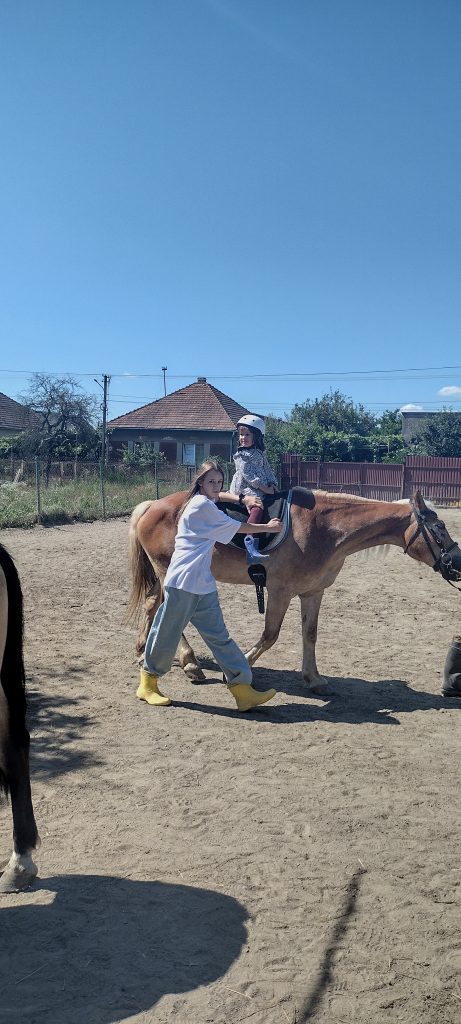
Margarita returns to the project ‘office’ – a specially equipped centre where she welcomes approximately 15 children who take part in each programme (this is flexible and customised to the needs of the children attending). Margarita greets the children and a volunteer leads warm up exercises to music.
The children and team travel to the stables in the project minibus (see below) and some parents/volunteers have cars. Each child has a 20 minute therapeutic horse ride. When they are not riding, they can relax in a shaded area and play with a selection of toys. Mothers can chat and share stories. There are hens and chicks, pigeons and guinea pigs. Sometimes the children have access to a trampoline. The children who ride first return to the centre for massage and free play. Children who remain can watch the horses have some free time in the yard and cool down and feed them carrots and apples. When all the children have ridden and the horses have been cared for, the group return to the centre where they sit down together for a snack/ lunch.
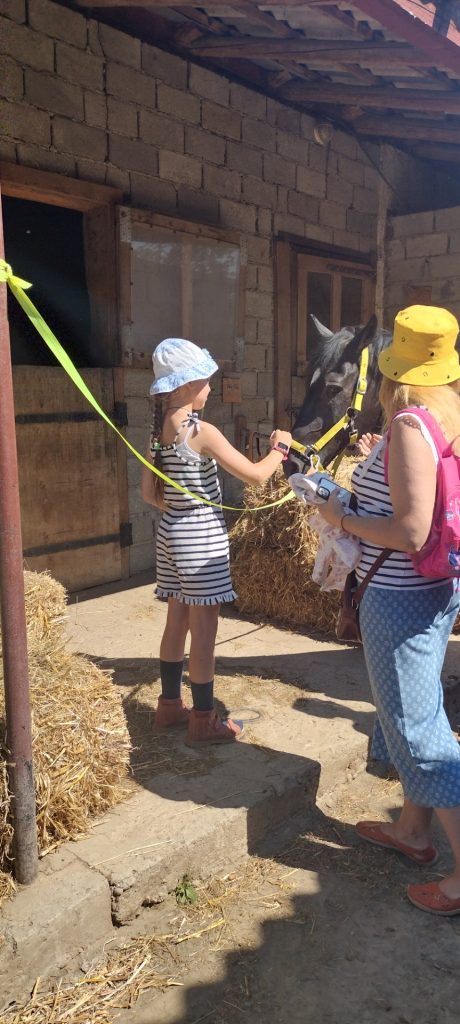
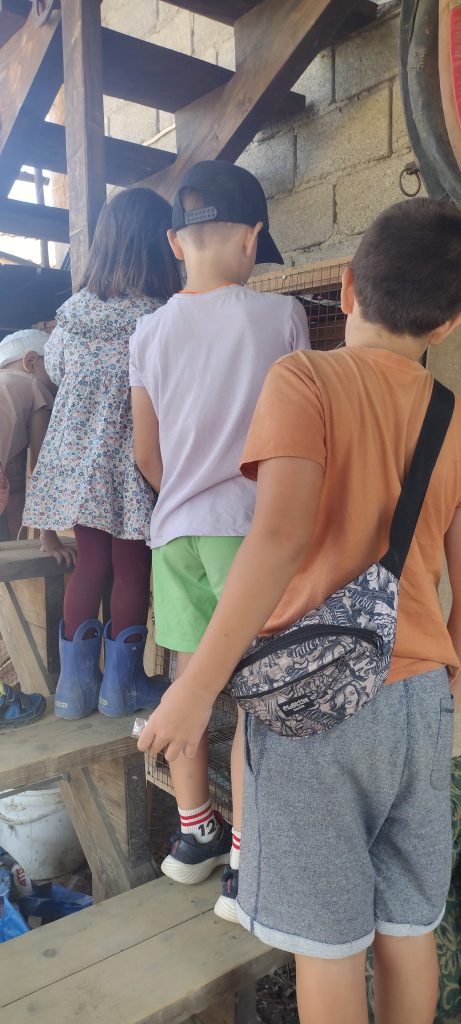
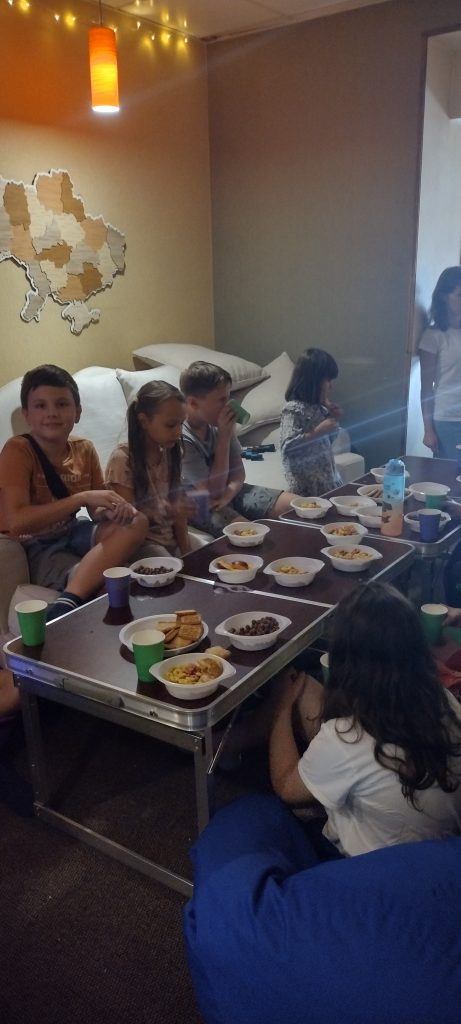
During the latter part of the session, the children (and some mothers) each have a massage; there is another time of exercise to music, a craft activity and free play. A music therapist visits once a week. Mothers can chat, have a hot drink, support their children if needed; get advice from a paediatrician and more. There is positive relationship between spirituality and resilience and short prayers at the beginning and end of the day and a simple bible story provide some quiet moments of calm.
As the parents and children leave Margarita debriefs with the volunteers. ‘What can we do better tomorrow? She asks.
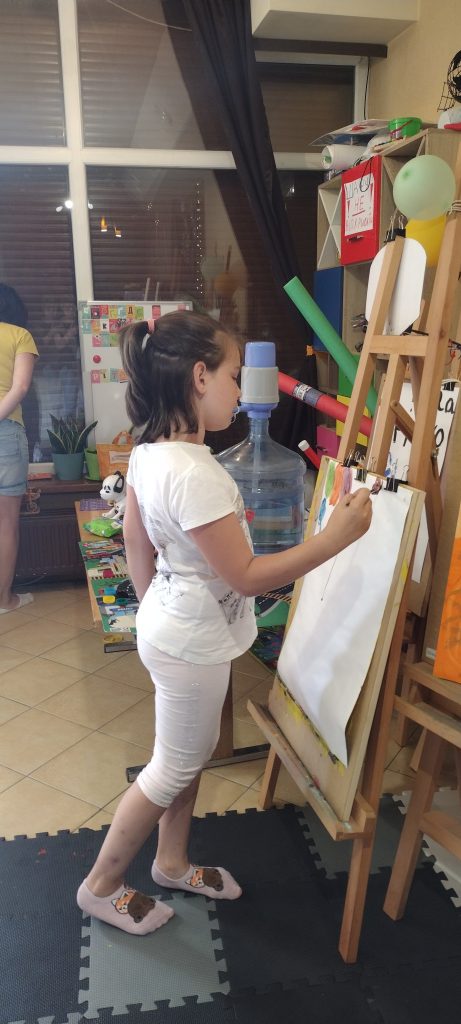
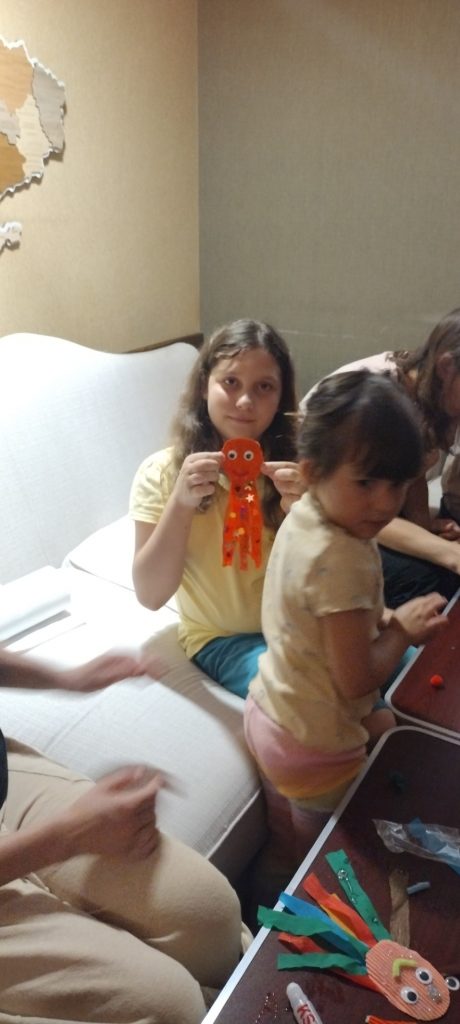
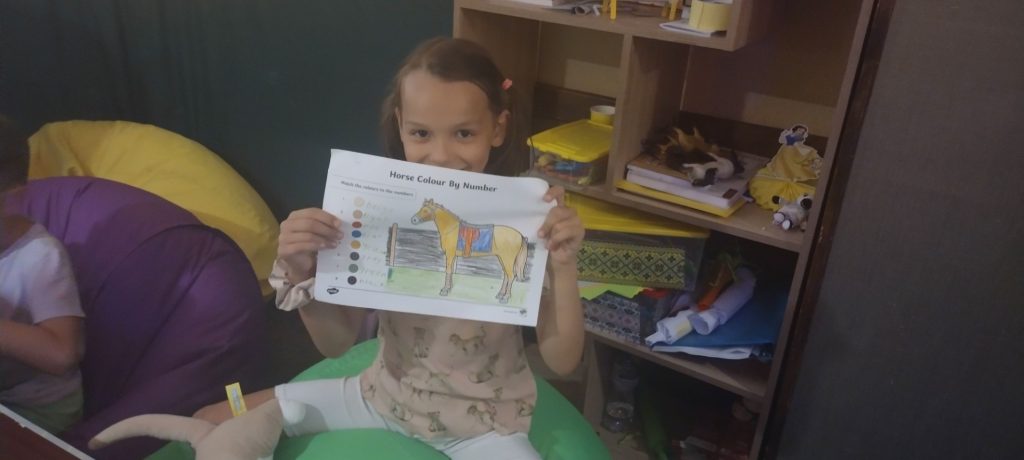
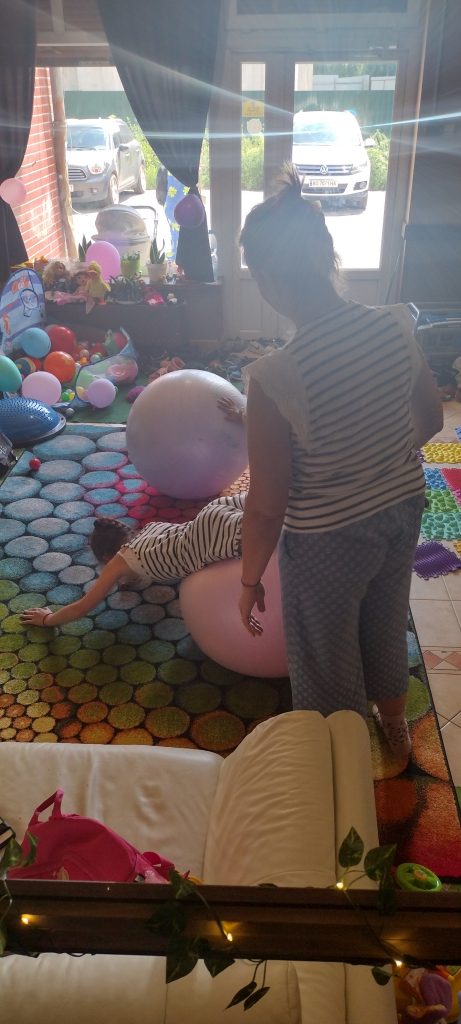
Ref: Jones L. ‘Adversity and resilience: 10 lessons I have learnt from working with children in humanitarian emergencies’, Arch Dis Child September 2019 Vol 104 No 9 Downloaded from http://adc.bmj.com/.
This blog was written by Melanie Gray, DHM trustee who was in Ukraine visiting Margarita and the Equilibrium Project from July 26th – August 5th.
The Equilibrium Project minibus was jointly funded by DHM and the Mennonite Network in the Netherlands. A huge thank you to our supporters and to the Netherlands Mennonite Church. If you would like to support DHM projects, please donate either through Stewardship or through a standing order or one-off payment to the DHM account:
Sort Code: 30-90-91 / Account Number: 68149860
Account Name: Dnipro Hope Mission Bank
Name: Lloyds Bank


